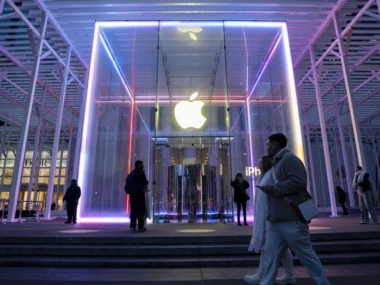According to new KPMG study, generative AI is the top investment goal for 70% of company leaders worldwide.
According to KPMG International’s annual CEO Outlook survey of 1325 company leaders, 50 of whom were from Australia, generative AI has the potential to help organizations thrive globally, as evidenced by the rise in use of tools like ChatGPT.
“Generative AI is an increasingly hot topic in boardrooms, with leaders looking to better understand its potential and how to implement this technology in their business strategies,” said Lisa Heneghan, global chief digital officer at KPMG.
To fully take advantage of the potential it brings, “the challenge is spending the money in the right places and having the right skills.”
According to the poll, which was conducted between August 15 and September 15, 70% of CEOs worldwide ranked generative AI as their top investment priority in order to maintain a competitive edge in the future.
The majority (52%) anticipate seeing a return on their investment in three to five years, with 22% citing higher profitability as the main advantage of using generative AI.
However, just 56% of Australian CEOs consider generative AI to be the top investment priority since they anticipate that investments in this field will take longer to pay off than those made by their foreign counterparts.
Andrew Yates, CEO of KPMG Australia, said he was not surprised to find generative AI at the top of the global list.
Given its enormous potential to transform business processes, he said, “I am not surprised to see generative AI at the top of the investment priorities for CEOs. However, I am encouraged to see that business leaders do not view it as a threat to their employees but, on the contrary, as a driver of job creation.”
However, 62% of Australian CEOs were concerned about a lack of regulation and the cost of implementation, and 2/3 of them said that deploying AI had ethical issues.
“Companies in many sectors are looking to establish a Responsible AI Framework to help them deal with the ethical challenges around the use of AI, while also taking advantage of the technology advances,” Mr. Yates said.
The majority of CEOs—82% globally and 69% in Australia—said AI may assist combat cyber dangers and provide adversaries new assault options.
Compared to 20% of CEOs internationally, 41% of Australian CEOs said their organizations were unprepared for a cyber assault.
Overall, the study revealed that despite having reservations about interest rates and the cost of living, most CEOs were optimistic about the future growth prospects of their companies.
Just under 80% of national and international leaders were upbeat about the near-term prospects, but a comparable percentage believed that tight monetary policy and continued high interest rates could prolong a downturn.
Australian CEOs were slightly more optimistic than their international colleagues, with 26% projecting growth of above 5% and 8% projecting growth of between 10% and 20%.
In addition, a higher percentage of Australian CEOs—22%—than global CEOs—predicted potential employment losses of up to 5% over the next three years.
Local CEOs were less positive about their home country’s economy (64%) than CEOs abroad (78%) were.
The top threat to Australian CEOs’ businesses, according to 84% of them, is cybercrime and security, followed by cost of living (82%), trade regulation (74%), and disruptive technology (70%) concerns.
Only 58% of respondents, compared to 68% internationally, said that talent issues would have an influence on growth during the next three years, a decline from previous years.
Only 38% of Australian leaders expressed concern about failing to adapt to climate change, compared to 55% internationally. Just over half (54%) of Australian leaders noted natural disasters and extreme weather occurrences.
In contrast to last year, when we were still fully recovering from the pandemic, it is good to see business leaders both domestically and abroad exhibiting greater confidence, according to Mr. Yates.
Although there is undoubtedly some worry that rising prices and interest rates may dim prospects, the numbers are generally encouraging.











